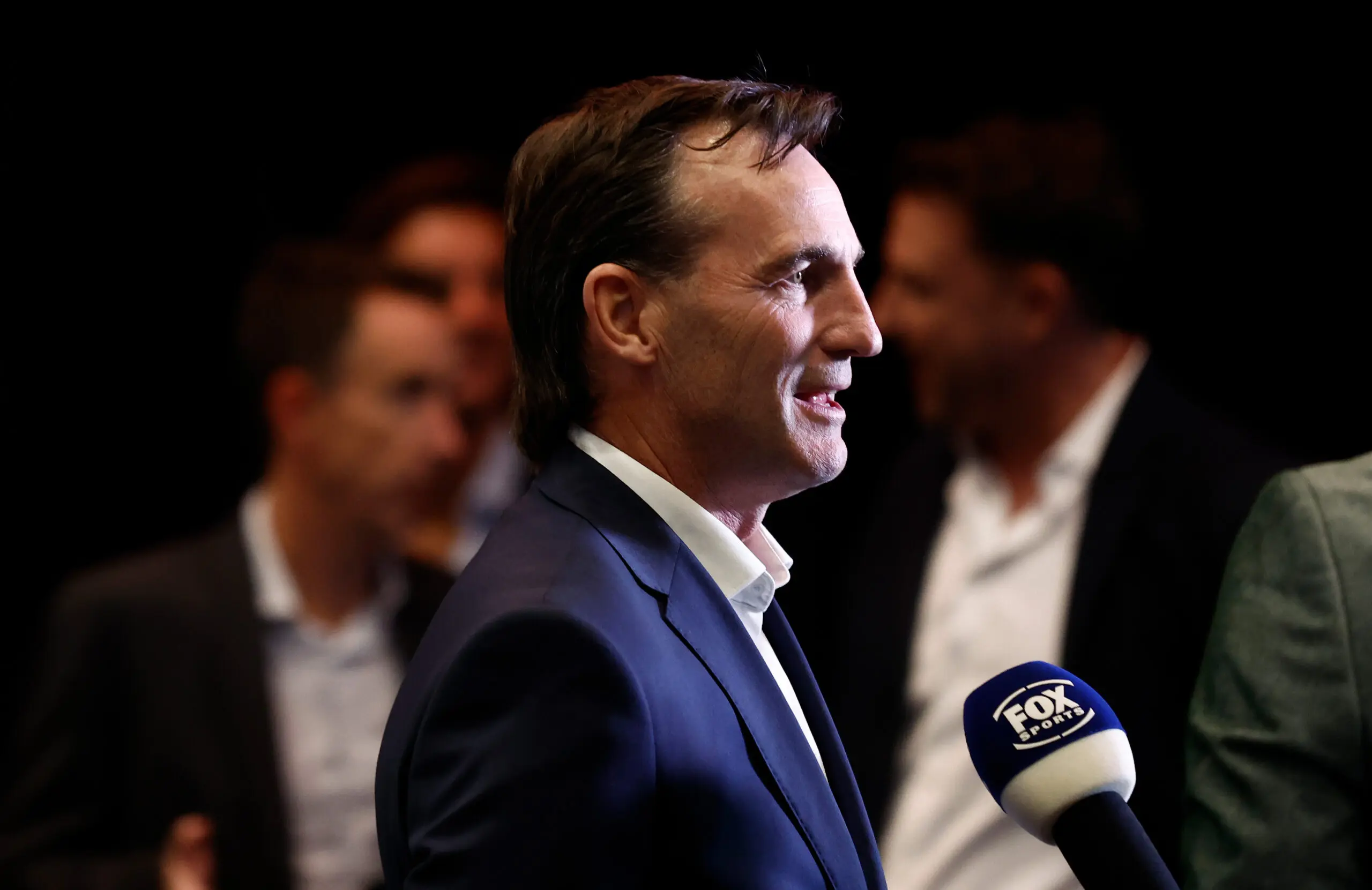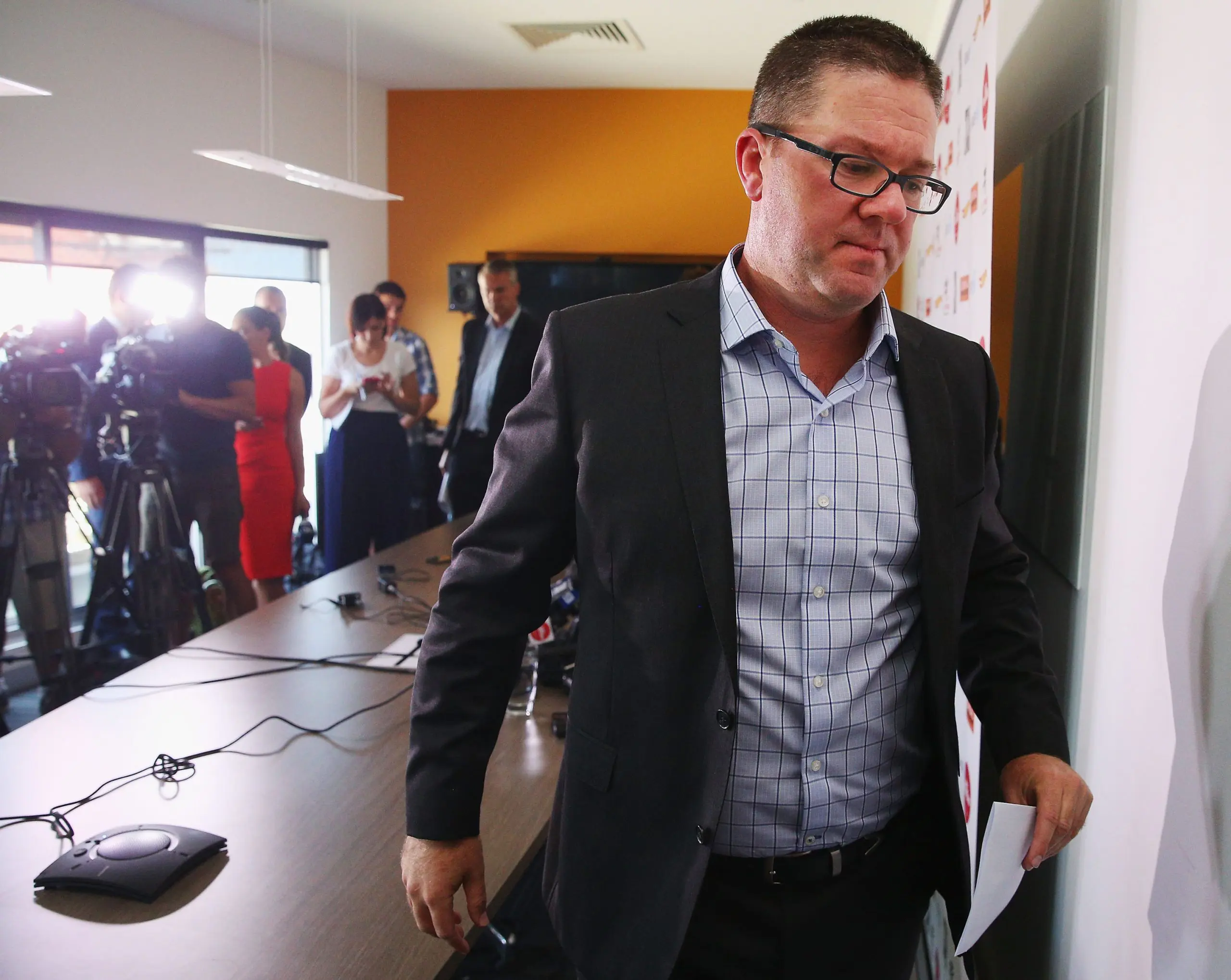The AFL has received the green light to implement a mid-season trade period, with CEO Andrew Dillon confirming that discussions with the AFL Players Association (AFLPA) have paved the way for its future introduction.
Speaking after weeks of renewed debate surrounding mid-season player movement, Dillon revealed that the league has cleared a key hurdle but is still grappling with how to fairly execute the plan.
"We discussed it with the players' association and we have got the green light to implement it," Dillon said on SEN.
"The concern has been from a competitive balance point of view.
"Whether there would be undue advantage for a Victorian team to partake in those trades where you could be traded and change clubs without having to move homes, as opposed to moving interstate and that's been the tricky part we haven't been able to solve."

Dillon said that while the issue remains unresolved, the league is committed to continuing the conversation.
"I think there will be a time that it will be solvable," he said.
"I think with any of these things, you don't have to open it up carte blanche at the start.
"But again, the competition at the moment is very well balanced and we continue to look at it, so what we don't want to do is just bring something in for the sake of it if it's going to upset that balance."
While there is no mid-season trade period for the 2025 season, Dillon's comments suggest it is no longer a matter of if, but how and when.
The conversation has re-emerged in recent days, in part due to the fallout from West Coast's Oscar Allen's early-season meeting with Hawthorn coach Sam Mitchell.
Allen, who is out of contract at the end of 2025, was spotted meeting with Mitchell, leading to widespread public scrutiny. The West Coast captain later addressed the playing group to apologise for the optics of the meeting.
Outgoing AFLPA chief executive Paul Marsh defended Allen's right to explore his options, saying these kinds of discussions happen all the time behind the scenes.

12 current Essendon players, including captain Jobe Watson, and five former players now at rival clubs have been found guilty of using banned substance Thymosin beta-4 during the 2012 season. (Photo by Michael Dodge/Getty Images)
"If anyone thinks players aren't doing this all the time, and clubs more importantly, then they don't understand what's going on," he said.
"Typically, what happens is players don't start talking to clubs if they're not being looked after at their club with the right offer.
"Without knowing the ins and outs of that, I think he had every right to go and talk to another club."
Collingwood veteran Scott Pendlebury echoed similar sentiments, backing the concept of a mid-season trade period but questioning the industry's readiness to handle it.
"I'm all for [a mid-season trade period]," he told 9News Melbourne.
"I don't know if we're mature enough as an industry. Looking at the Oscar Allen stuff that happened, we can ask 'are we mature enough with how we handled that?'"
"I do think it will come in with time, the mid-season trade period. It's a matter of when, not if.

"It just adds to the competition. Clubs could potentially rejuvenate their list quicker."
Pendlebury also backed Allen's right to meet with another club, stressing that these kinds of interactions are a natural part of the AFL landscape.
"My overarching thing on this is it's happening everywhere. It's not like Oscar Allen is the only one talking to Sam Mitchell," Pendlebury added.
"Maybe as an industry we're all a bit shocked that it was seen, but we're not naïve surely to think that it's not happening. I've spoken to players from other clubs my whole career… that's just the nature of the industry we're in."
With the AFL confirming its intent to eventually introduce a mid-season trade window, Allen's situation could one day be seen as a textbook case of how such a system might work.
If a mid-season trade period had been in place, Allen might have simply been traded, and the narrative surrounding his meeting with Hawthorn would have played out very differently.
The key challenge now lies in ensuring any new system maintains competitive integrity, particularly between Victorian and interstate clubs.
























